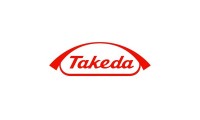-
Lyra Health raised $45 million to improve digital behavioral health technology, to treat mental illness
- Source: drugdu
- 709
- May 8, 2018
-
Fitbit partners with Google digital health innovation
- Source: Ddu
- 1,393
- May 8, 2018
-
Privately-held Manipal increases bid for Fortis for INR 8358 Cr.
- Source: Ddu
- 800
- May 8, 2018
-
South-Indian states invite Midmark to set up unit
- Source: Ddu
- 653
- May 8, 2018
your submission has already been received.
OK
Subscribe
Please enter a valid Email address!
Submit
The most relevant industry news & insight will be sent to you every two weeks.













